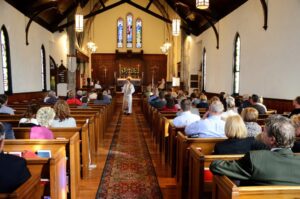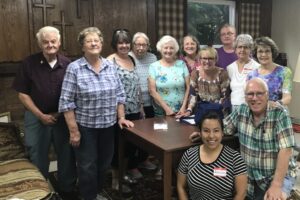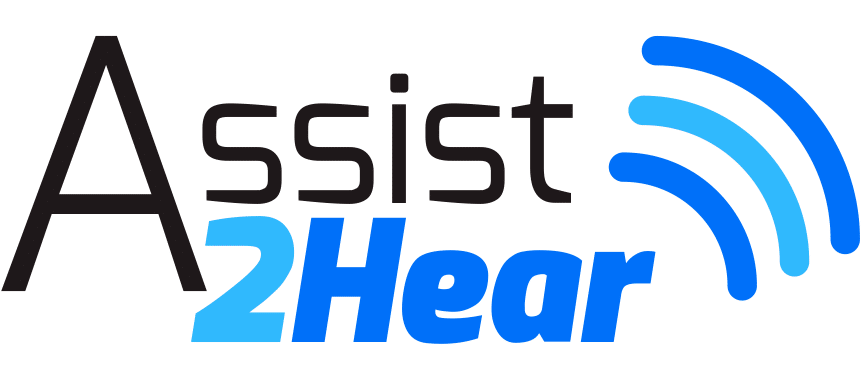Aug 7, 2017 | Learning Center, News

Caring for your hearing aid is a must! Take care of your investment with these simple tips.
Caring for your hearing aid is essential. Like your car or your home, your hearing aid is an investment and a vital one at that. If you want to make your hearing aid last longer, consider these tips:
1. Did you know that moisture is the # 1 cause for hearing aid failure? Clean and disinfect your hearing aids regularly, but not with water. Spray your hearing aid with a disinfectant/deodorizer that is made especially for hearing aids (including ear molds), then wipe them down with a soft, dry cloth. You can also use hearing aid cleaning wipes, which are pre-moistened. In addition to products that you can use at home, you can also purchase travel-size (2 oz. or 4 oz) bottles of hearing aid spray cleaner or travel-size maintenance kits with battery testers.
2. Remove any ear wax in and around the plastic tubing with a hearing aid brush. Wax can block the receiver or microphone and reduce sound, cause feedback or create a whistling effect. Although many hearing aid kits come with a wire pick, be careful when using them as they can force the wax deeper into the channel.
3. Open the battery door when storing your hearing aid to let the air enter. This will reduce the effects of moisture and helps prolong battery life. Better yet, use a hearing aid dryer. Some hearing aid dryers use gentle heat to remove moisture and condensation. Some use UV light instead of chemicals, to inhibit bacteria growth. Others, like the Ever-Dry Hearing Aid Dryer, use highly absorbent silica gel beads to pull the moisture from the hearing aid and any wax. They’re simple to use and the compartment is easy to open (even for those with arthritis). Most, like the Serene Innovations Hearing Aid Dryer, will hold two pairs of hearing aids or cochlear implant processors. There’s even a built-in battery tester and an AC adapter so you can take the hearing aid dryer when you travel.
4. Keep your hearing aids in their dryer or case when not in use. Don’t store your hearing aid in direct heat or sunlight, which will damage them.
Maintaining your hearing aid can save you a lot of money in the long run. Hearing aid care is surely a “sound” investment in your future!
To learn more about hearing aids and Hearing Loops, visit https://assist2hear.com/treatments-and-devices/
Aug 7, 2017 | Learning Center, News

Now everyone can enjoy entertainment at home with a home hearing loop.
If your family complains that you keep the TV too loud, or you can’t hear your sound system when you leave the room, a home hearing loop can help.
What’s a hearing loop?
A hearing loop, also known as induction loop, is simply a loop of wire plugged into an amplifier that sends a magnetic signal to the t-coil in your hearing aid or cochlear implant. Unlike other wireless hearing technologies like infrared and FM systems, hearing loops don’t need any external receiving units or annoying headsets– simply switch to the telecoil setting in your hearing aid for clear sound.
What’s so great about a residential hearing loop? Everything!
VOLUME: You’ll hear things more clearly and without needing to raise the volume (on the TV or sound system, for example), which can disturb others.
SOUND CLARITY: When the amplifier produces the audible sound that’s relayed back to you, feedback and background noise is eliminated (or greatly reduced)
PRIVACY: Because the loop system works with your existing t-coil hearing aid, you don’t need to “advertise” your hearing loss with a headset.
MOBILITY: Depending on the loop system you choose, you can move from room to room and still get great sound. No need to lug around a belt pack receiver or stay tethered to a stereo with headphones!
What if I don’t have a t-coil hearing aid?
Although most hearing aids in the U.S. are now being made with telecoils, there are options for you if you have an older model that is not equipped with a t-coil (or if you don’t have a hearing aid at all). There are headsets and loop receivers that are compatible with the induction loop to assist those without hearing aids or t-coils.
Can I use my loop system in other places?
In addition to residential loop systems, there are also portable hearing loops for your car or to take when you stay in hotels or visit friends and family. There’s also a growing national hearing loop initiative in which many churches, venues, theaters and public and private businesses (like pharmacies, hospitals, banks and grocery stores) are choosing to install a hearing loop system with raving reviews. To find out about public loop systems in your area, visit HearingLoop.org.
What are you waiting for? Get in the loop!
Already have a hearing loop in your home? Please leave a comment to share how it’s improved your quality of life.
Aug 7, 2017 | Learning Center, News

Hearing Loops for Churches
Hearing loop systems in churches make sure that every word is heard AND understood. One of the major reasons many people get hearing aids is to hear better in church. Unfortunately, large rooms with many hard surfaces like churches are not hearing friendly. Even with the best sound system, reverberation and ambient noise are a huge problem for those with hearing loss and hearing aids.
Helping seniors hear better at church
Hearing loop systems in churches literally brings the sermon straight to the ear of the listener via their hearing aid! The sound is truly nothing short of amazing. One woman in Oklahoma City recently said “It felt as if the minister was sitting right next to me!” And there are no embarrassing headsets to check out- one uses their own hearing aids that are set for their own hearing loss!
Before induction loops, it was common for hearing-impaired parishioners to lose sound quality due to poor acoustics, sound blurring or feedback. Now, churches are paving the way to help the hard of hearing by installing hearing loops. The move isn’t just helping church-goers; it’s bringing back former church-goers who stopped going due to hearing issues. Why go to church if you have to struggle to hear the Word of God? And no one wants to announce their hearing loss with cumbersome headsets!
The miracle of hearing loops
For those who have not experienced a hearing loop system in a church, a hearing loop (also known as an induction loop) is a wireless device technology that works with telecoil hearing aids (almost all new hearing aids now have telecoils) and all cochlear implants to produce clear sound without feedback or background noise. Consisting of only three parts – an amplifier, microphone and very thin loop wire – hearing loops create a magnetic field that is picked up by any t-coil equipped hearing aid and converted to audible sound.
Unlike infrared and FM wireless hearing technologies, which have limits due to varying frequencies and require a receiver (i.e. a headset or neckloop), induction loops simply need a t-coil hearing aid or a cochlear implant. (Those without t-coils can also use compatible headsets.) Essentially, a hearing loop system helps the hearing aid do its job!
Hearing loops are already improving the lives of the hearing-impaired at home, in major entertainment venues and theaters, in public places (like pharmacies, banks and stores), and perhaps of most significance to many, in church. Please contact us for a free demonstration of a hearing loop system in your church today!
If you have a hearing aid or new cochlear implant, you’ll want to be kept in the loop – the HEARING loop, that is. To learn more about hearing loops for your church, visit Service: Hearing loops for Churches.
Have you experienced a hearing loop system in church? If so, please share with us how it has improved your ability to hear the Word during worship!
Aug 7, 2017 | Learning Center, News

Hearing Loops are a must for hard of hearing employees.
Hearing Loops in the workplace are a win/win for consumers, employees and businesses! Many employees and/or customers require hearing assistance and better hearing access. Some businesses choose to meet ADA requirements through use of less user-friendly technology, such as FM systems. While cheaper, an FM system is less preferred by consumers because it requires a headset which is inconvenient, indiscreet, and often times unsanitary. A Hearing Loop syncs with a user’s hearing aid and reduces the need for maintaining and tracking headsets for the business.
Our goal is to get businesses “in the loop” about the needs of their consumers and employees with hearing loss, as well as the regulations that affect businesses related to hearing access. In addition to increasing consumer and employee satisfaction, Hearing Loops keep businesses compliant with the American with Disabilities Act (ADA) and help them avoid expensive regulatory fines.
Curious how a hearing loop works? You’re in luck! There’s no long version to this story: It’s a loop of wire plugged into an amplifier. The magnetic signal broadcasts the sound (from a TV, radio, microphone or PA system) to the listeners’ t-coil hearing aids. That’s it! Hard of Hearing listeners without hearing aids, or those who have hearing aids without t-coils, can use headsets to receive the sound. Hearing loops eliminate, or at the minimum, greatly reduce feedback and background noise, which results in a clearer signal from the source of the sound. Depending on the size of the loop, there’s virtually no limit to the number of listeners who can receive the magnetic signal. There are no headphones to share.
It’s not hard to figure out how induction loops could help hard of hearing employees in an office, warehouse, manufacturing facility, retail store, entertainment venue, or service industry (e.g. restaurant, car dealership/mechanic).
EXAMPLE 1: Workers in a manufacturing plant can more clearly hear the PA system over machines’ noise levels. This is especially important in loud work environments for safety reasons. What if the hard of hearing employees can not hear the emergency warnings or important announcements?! What if there is an important employee presentation which the hard of hearing employees simply can’t hear? There is a common misconception that everyone can hear a booming voice or sound through a loud speaker system, but this just isn’t the case.
EXAMPLE 2: Employees in noisy entertainment venues, such as concert halls or auditoriums, can’t just turn up the volume on their hearing aids because it would only amplify everything- air conditioner sounds, footsteps, chatter. With hearing loops, these same employees can simply switch on the t-coil setting in their hearing aid and receive clear sound from the speaker’s microphone. You may believe all employees can hear the speaker or presentation, but for the hard of hearing, background noise and distance often interfere and make it impossible to understand! Hearing Loops are imperative for on-site meetings, conferences and seminars.
EXAMPLE 3: A hearing loop installed for a hospital, bank, grocery store, or pharmacy will definitely help customers but can also be used by and assist employees. If the receptionist, bank teller, or employee is hard of hearing behind the glass or partition, customer service can be affected. Clear communication between your staff and customers is a must!
Hearing Loops in the workplace also creates incredible ease for employers. Once a loop system is installed, there’s virtually no maintenance! There’s no extra equipment to sign out, adjust or clean. Try to compare that to other assistive listening systems which require constant and consistent maintenance and employee training.
With small meeting rooms starting at just $1,500, no workplace should be out of the loop! Visit www.Assist2Hear.com to find out more about getting your business in the hearing loop.
Where could your company benefit most from a hearing loop in the workplace?
Jul 21, 2017 | Learning Center, News

Hearing Loops get used while headsets simply don’t.
Hearing Loop systems get used while FM/Infrared headsets gather dust. A rolling stone gathers no dust- but FM headsets do! Just ask any venue that has an FM or Infrared system in place for the hard of hearing. Hearing Loops get used while headset systems don’t. Why?
Let me count the reasons:
- Headsets advertise hearing loss
- Headsets are generally uncomfortable
- Batteries may not be charged
- Headsets often disappear into a lost closet or forget to be returned by a user
- Sanitary issues for many people and require cleaning maintenance by the facility
- Most hearing aids must be removed to use! This is an obvious problem
- Vanity is real. Most people do not want to wear the headsets which mess their hair or because they “feel silly wearing headsets!”
- Interference can be an issue for FM and Infrared systems require a direct line of sight
Once a hearing loop is installed, there is virtually no maintenance, except cleaning and battery repair for the few loop receiver headsets for those brave souls that will use them. And those that have spent $2,500-$7,500 for a pair of hearing aids can put them to use by switching to the telecoil (“T”) setting to enjoy clear sound through the aids that are already programmed for their own hearing loss. No fuss, no muss! It basically doubles the functionality of hearing aids. Many people get hearing aids when they realize they can’t understand sermons in church. Disappointment is a common feeling when they realize that even after spending thousands on a hearing aid, they STILL can’t hear in church. Hearing Loops can help!
Hearing loops open up a whole new audience that has not been adequately served in our country. The number of people that can listen in the loop is unlimited where FM and Infrared systems are limited by the number of headsets available in the venue. Hearing loops are universal so a hearing aid wearer can hear in looped venues around the world.
Both FM/Infrared and Hearing Loop Systems meet ADA standards for accessibility in public venues. However, the new ADA standards effective 3/15/12 require that 25% of the required assistive listening headsets be hearing aid compatible. If a venue has a hearing loop installed, this requirement does not apply.
With induction hearing loops, people bring, maintain and use their own wireless receiver (the hearing aid) – invisibly! For more information about hearing loops, visit www.assist2hear.com.
Jul 21, 2017 | Learning Center, News
What a great night at the OKC HLAA with the Hearing Loop Table!

OKC HLAA group trying out the HEARING LOOP TABLE at the OKC HLAA!
Our July meeting was a casual game night and was a perfect evening to demonstrate the hearing loop table made by Contacta, Inc. The hearing loop table has a hearing loop built underneath the surface of the table with microphones in the corners. This allows people who are hard of hearing to simply switch their hearing aids to a T-coil setting and hear each other with clarity! Each table is handcrafted and proudly made in the USA.
Just imagine sitting at your favorite restaurant again and actually being able to hear the waiter explaining the specials or even hear your friends across the table. It is perfect for community centers for cards or board games. We had a blast playing Left Center Right and could actually hear each other! One member said “This would be fantastic for Thanksgiving dinners!”
Assist2Hear is happy to introduce the hearing loop table and hearing loop technology to restaurants, assisted living centers, community centers, and churches throughout Oklahoma! Please visit the Hearing Helpers Room to experience the loop table for yourself and to learn about other hearing loss technology for daily living. The hearing helpers room is located in the Integris OKC- INTEGRIS Third Age Life Office, 5300 N. Independence, Ste. 210, Oklahoma City , OK 73112.
If you would like more information on hearing loops or the hearing loop table please contact us today.
Please consider joining the OKC HLAA. One of my favorite things to do is to meet other people who experience hearing loss in my own community. It is so empowering to share information and tips about living with hearing loss. Oklahoma City has a very strong group filled with members willing to share their own stories and help our community become more hearing friendly. Join the Oklahoma City Chapter of the Hearing Loss Association of America for our annual ice cream social on August 5, 2017 from 2:00-4:00pm at Lakeside Methodist Church in OKC! Download the invitation and invite a friend to share the scoop about hearing loss!






